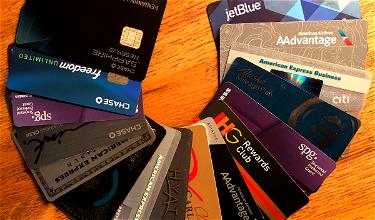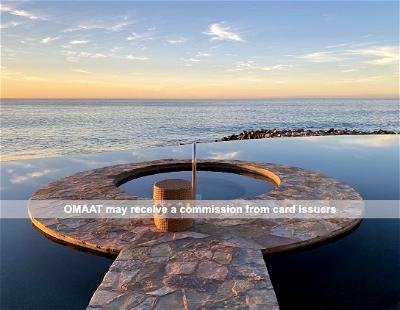Discover has announced that as of April 2018 they will no longer require signatures at the point of sale for credit and debit transactions in the United States, Canada, Mexico, and the Caribbean. The goal here is to speed up the amount of time that it takes to complete a purchase. The logic is that if consumers know that a certain type of payment processor will be faster, they may be more likely to use that card.
Discover isn’t the only payment processor to make such an announcement. Several weeks ago Mastercard announced that they will be eliminating signature requirements as of April 2018 as well, so clearly Discover’s move is a competitive response.
These moves on the part of Discover and Mastercard do nothing to enhance security, though they don’t do much to reduce security either. The whole concept of requiring signatures seems so outdated, given that they’re not actually verified at the time a purchase is made. If you’ve ever dealt with credit card fraud, you’re not even asked to look at receipts and confirm if a signature is from you. So it’s an outdated concept that really is just a security theatre of sorts.
What continues to surprise me is the lack of credit card security we have in the US. Outside the US, chip & PIN technology is the norm, which actually adds an extra layer of security. Not only does it require entering a PIN code, but it also means that the transaction always happens within sight of the cardmember, rather than elsewhere, where they often disappear with your card. Meanwhile in the US a vast majority of cards don’t have that technology.
The good news is that as consumers it’s not really our problem — this just means that credit card companies are spending a lot more money on fraudulent purchases in the US than elsewhere, and it seems they’d rather do that than overhaul the system.
Now that two payment processors are adopting this technology, I’ll be curious to see if American Express and Visa follow as well.





I have no problem with this. If anything, the signature requirement is a security PROBLEM, not solution. When I'm in the US, here I am making purchases, often the retailer has my e-mail or postal address, now they have my signature.
There are even a couple of quick-serve restaurants I go to where the cashier makes you sign the receipt, then immediately PUTS IT IN THE RUBBISH BIN! Not even a shredder.
I...
I have no problem with this. If anything, the signature requirement is a security PROBLEM, not solution. When I'm in the US, here I am making purchases, often the retailer has my e-mail or postal address, now they have my signature.
There are even a couple of quick-serve restaurants I go to where the cashier makes you sign the receipt, then immediately PUTS IT IN THE RUBBISH BIN! Not even a shredder.
I keep begging my banks for Chip+PIN but they still don't do it, which makes absolutely no sense to me. Especially for credit cards marketed as "travel cards."
yes we've had chip and pin for the last 10~ years in Canada. Tap or "pay wave" is the newest method in which you just tap your card on the terminal to instantly pay for purchases under $100. Saves even more time not having to wait for the screen to load to input your pin number. Chip and pin is very slow by comparison.
This will literally change nothing. All the card networks forbid requiring a signature for purchases under $25, yet this is obviously not enforced. It’s up to the individual merchants since the networks clearly don’t enforce their own policy. I’ve reported many local businesses to the networks for violating this policy and notified them in writing with no changes.
I made a purchase of a cup of coffee at McDonald's some time ago and was told the swipe did not work and to swipe again. Well I did so, got my receipt and left. Well it turns out that the first swipe did work and I got billed for that and for the purchase of the next customer. I explained this to Amex and they said, essentially "tough", nothing we can do. Anyway, I...
I made a purchase of a cup of coffee at McDonald's some time ago and was told the swipe did not work and to swipe again. Well I did so, got my receipt and left. Well it turns out that the first swipe did work and I got billed for that and for the purchase of the next customer. I explained this to Amex and they said, essentially "tough", nothing we can do. Anyway, I went back to McDonald's and the very nice manager went back through the computer records and realized my story made sense and made good on this. This was very disturbing that Amex would not let me dispute this charge. Maybe I could have tried going through the full dispute rules, but I really did not have much proof, although it was obvious what happened.
The extra cost of fraud goes in higher merchant charges and thus, ultimately, in higher costs for shops etc. Not necessarily higher prices as large chains can negotiate significantly better deals - so the real effect is on independent retailers.
It's clear that the US issuers don't care about extensive fraud but it's absurd to think that it has no effect on consumers - people hate the hassle of regularly having to change cards...
The extra cost of fraud goes in higher merchant charges and thus, ultimately, in higher costs for shops etc. Not necessarily higher prices as large chains can negotiate significantly better deals - so the real effect is on independent retailers.
It's clear that the US issuers don't care about extensive fraud but it's absurd to think that it has no effect on consumers - people hate the hassle of regularly having to change cards because of fraud and dealing with all the consequences.
And it can't be about speed of transactions since contactless is massively faster and they haven't bothered with that when it's now commonplace in most of the developed world. Instead they have ceded the market to Apple and Google who have a less satisfactory solution.
Visa is in on this too. Walmart no longer requires a signature, even for very large purchases.
The point of the security features of credit cards is to manage fraud, not eliminate it. So, if the credit card companies and banks are comfortable with the fraud that comes from not having chip and pin, so be in. There's also a "cost" in making consumers change behaviors, so they clearly think that's not worth having in the U.S., where credit card usage has typically been much higher and where Americans carry more credit cards per person than in Europe.
Welcome to the year 2000 in most countries outside the US. Signing a card receipt is a joke. Anyone can sign whatever they want and nobody cares. Just an extra step that doesn't make any sense.
" If you’ve ever dealt with credit card fraud, you’re not even asked to look at receipts and confirm if a signature is from you."
On the other hand, I had cheque fraud last year (chequebook stolen) and the bad signature was used to clear the case.
But yes, for credit cards, theyre ridiculous.
Note: I was just in Peru and for EVERY credit card purchase, besides a signature, you had to give you passport number!
It is a consumer burden. As security is reduced or not implemented, like Chip+PIN, we have to more carefully audit the bill and discover the fraud.
Chip+PIN would benefit the system and underwriting of the funds, as well as benefit consumers.